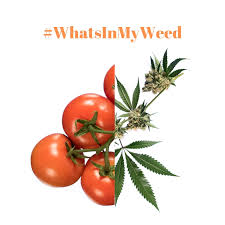Nonprofit launchess certified organic labeling project to protect cannabis consumers

The cannabis consumer demographic might be growing, but not enough people actually know what’s in their stash. This is according to a nonprofit organization called the Cannabis Certification Council (CCC), which aims to clear confusion with its unique soon-to-be-launched organic labeling program.
Using the hashtag #WhatsInMyWeed, the CCC is raising awareness about the importance of consuming/using organic substances, like cannabis. The Council claims that they will teach consumers how to make informed decisions when it comes to buying their bud – whether it is in the form of edibles, topicals or tinctures – from licensed dispensaries.
The CCC’s organic cannabis labeling program couldn’t have come at a better time, what with a vape health crisis breaking out across the United States last year. Taking the vape crisis into consideration – which had claimed the lives of 60 people in 27 U.S. states as of January 21, 2020 – it is more important than ever for people to know exactly what they are consuming.
CCC unveiled organic cannabis labeling program in December
When the annual MJBizCon event took place in Las Vegas last December, audiences were indulged with the first ever in-depth presentation about the CCC’s organic cannabis labeling program. The organization, which is based in Denver, Colorado, informed crowds about the benefits of its industry-wide certification program. Expected to be fully developed over a six-month period, the labeling system will involve the application of a CCC “Organically Grown” sticker on all products that qualify in accordance with state laws.
According to the Council, various labels will be included in the organic system; labels for outdoor hemp and cannabis production, indoor greenhouse production and cannabis-derived byproducts. Certification must be obtained by applicants, who will be required to partake in a months-long application process. Once the organic cannabis labeling program is unleashed upon the U.S. market, a public input period will take place. This is necessary to gather feedback and is a requirement for all certification programs.
“The bulk of the problem the industry has been up against lies in false organic claims,” explains CCC founding board member and co-owner of vertically-integrated cannabis company L’Eagle, Amy Andrle. “Certification will help to clarify the market and inform consumers about what they are buying. And as the first cannabis label that everyone can clearly understand, a premium can be applied to certified products in the legal marketplace.”
CCC’s organic cannabis labeling program will focus on sustainability
 It’s thanks to five founding sponsors that the organic cannabis certification is gaining momentum. Included in the list of CCC’s sponsors include CG Corrigan, House of Cultivar and Mng L’Eagle.
It’s thanks to five founding sponsors that the organic cannabis certification is gaining momentum. Included in the list of CCC’s sponsors include CG Corrigan, House of Cultivar and Mng L’Eagle.
The Council says that its organic cannabis labeling system will enhance existing cannabis certifications, such as Envirocann, Foundation of Cannabis Unified Standards (FOCUS), Sun + Earth and The Cannabis Conservancy (TCC).
According to CCC Cannabis Sustainability Workgroup member Leslie McAhren, published scientific literature has exposed pesticide residues in smokable cannabis flower. With this in mind, she stresses the importance of executing proper pest management during phases of cultivation and production.
“Growing clean cannabis has been something we’ve [CG Corrigan] been practicing for years, but converting this knowledge into a policy standard is the best way to protect the public’s health and to inform consumers nationwide,” explains McAhren. “I am anxious for the organic standard to prioritize integrated pest management and to have the EPA and USDA (not just the DEA) involved in pyrolysis [breakdown of larger molecules into smaller molecules in the presence of heat] studies and the regulation of cannabis. This will allow us to best explore the human health effects of pesticides used in cannabis cultivation.”
Although things look promising for the organic cannabis labeling system, the CCC’s initiative should be considered somewhat of an experiment for now. Well, at least until certain gray areas are clarified; such as industry standards for the certification of clean, organic and sustainable cannabis.
The CCC’s Cannabis Sustainability Symposium has been taking place in Denver since 2016. Learn more by clicking here.







